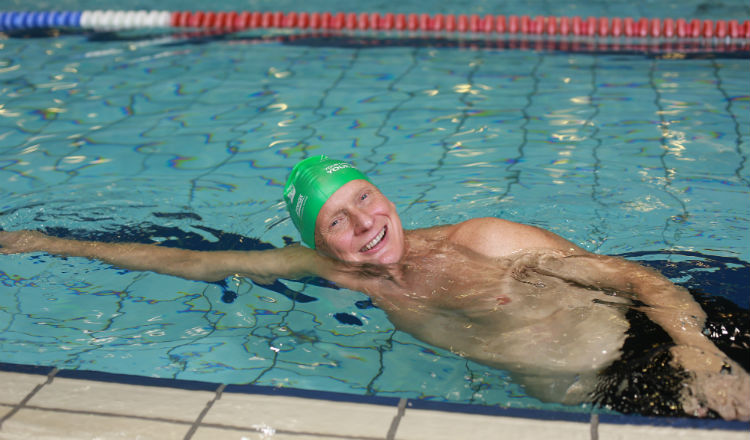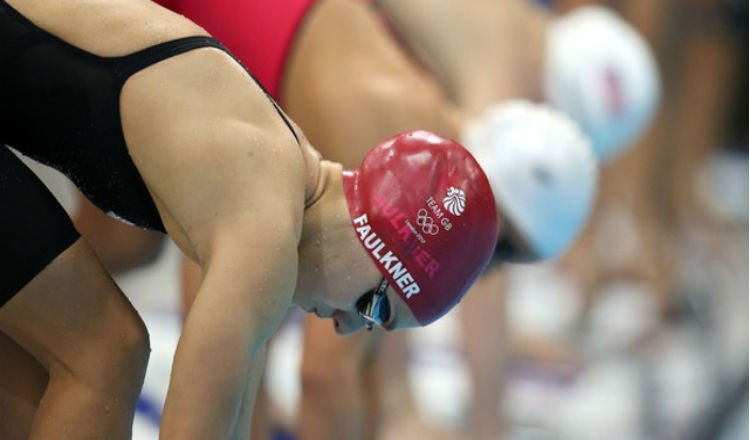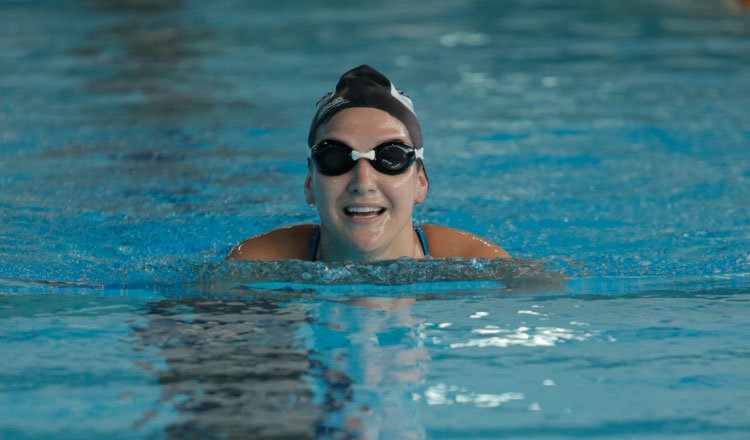Taking on your Swimathon challenge for the first time?
We’ve gathered top tips and inspiration from Duncan Goodhew and Ellie Faulkner, star swimmers and Marie Curie supporters, to help you with your Swimathon challenge this year. Good luck!
Not signed up to swimathon yet? Sign up now

Meet Duncan
Duncan Goodhew is Swimathon President and an Olympic gold medallist swimmer. Here's what he has to say about taking on Swimathon:
“You’ll swim alongside each other to complete your challenge, and experience that exceptional feeling of affinity with others and contribution to a greater cause. You’ll get an amazing feeling of personal achievement when you touch the end of the pool on your Swimathon event day!
“Together, you’ll have done something really rewarding for yourself and for others.”
Swimathon is about you and the Swimathon challenge that’s right for you! And you won’t be alone, as many other people of all abilities will be there taking part with you for the first time.
Duncan’s top swimming tips
This is your challenge
Set a goal and create the time to achieve it – it will motivate you for better training. This is your swim, from 400m to 5k, there’ll always be a Swimathon challenge for you. Check out Swimathon.org to find a training programme that suits you.
Be supported by the wonders of water
When you are in water it cocoons and supports you, which is why astronauts train in water as it gives them a sense of weightlessness. Try to turn off your land/gravity-based response system. In water all you need to do is relax and let the water take the strain.
Keep your head steady
Your head is heavy so it has the biggest influence on your movement through water. Achieve the best possible body position while swimming by ensuring your head makes a smooth and stable course through the water.
Streamline yourself
Think of streamlining as reaching out in front of yourself. Many people start their stroke with a slight bend in the elbow which creates unnecessary drag. Stretch forward to the point where the top of your shoulders touch your cheeks.
Train your brain
Work on your attitude and inner voice before, during and after exercising. Ban the “oh no’s” and make sure you remind yourself of the many benefits and enjoyable experiences of swimming.
Mix up your routine
Repeating the same workout means your body responds and adapts. Once it has adapted it’s time to push your body harder or change the routine to tax other muscle groups or body system. Short sprints will build strength, while long distance works the cardiovascular system for endurance.
Gradually increase effort
The objective is to see a gradual sustainable improvement. By limiting your increase in effort to no more than 10% you're unlikely to become too tired or sore. This will mean you are less likely to miss your next session. Your main goal should be consistency as your fitness will grow over time.
Get flexibile
Swimming will naturally improve the suppleness of your muscles. However, it’s important to stretch your muscles and work on joint mobility regularly. This is a key area of health and fitness that is often overlooked (at a cost!).
Train with someone
Recruit a friend to swim in Swimathon so you can compare your training and share the experience.
Have fun!
Swimming is one of the best sports you can practice, the benefits of it have been clearly outlined in various studies and pieces of research, but it would never be the same if you didn’t enjoy it. So make sure you have your share of fun at the pool!
Ellie Faulkner, Team GB swimmer
“Anyone can take part in Swimathon and help make a difference – both to yourself by being active and also by helping to provide support to families when they need it most.”
Read more tips from Ellie on how to improve your swimming technique and overcome your nerves to swim with more confidence.

